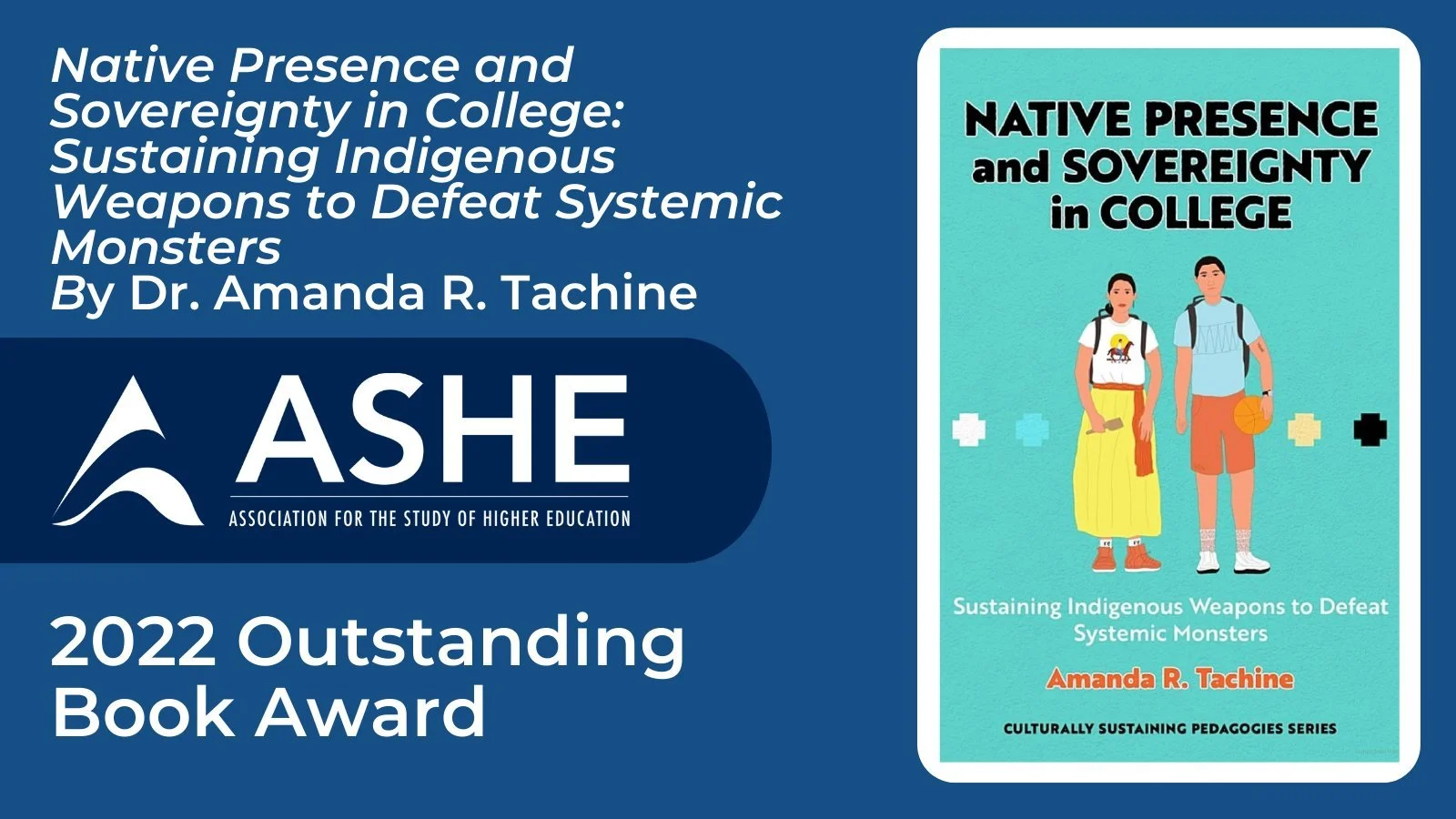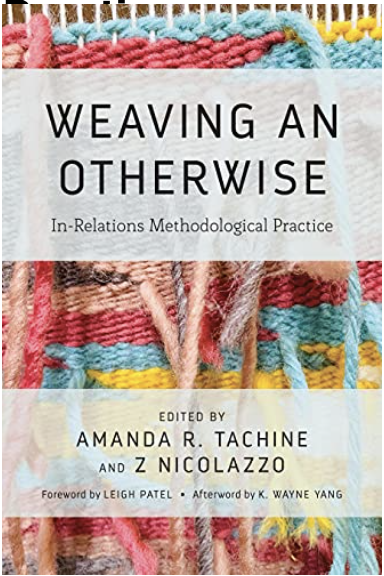Native Presence and Sovereignty in College: Sustaining Indigenous Weapons to Defeat Systemic Monsters (Culturally Sustaining Pedagogies Series)
What is at stake when our young people attempt to belong to a college environment that reflects a world that does not want them for who they are? In this compelling book, Navajo scholar Amanda Tachine takes a personal look at 10 Navajo teenagers, following their experiences during their last year in high school and into their first year in college. It is common to think of this life transition as a time for creating new connections to a campus community, but what if there are systemic mechanisms lurking in that community that hurt Native students’ chances of earning a degree? Tachine describes these mechanisms as systemic monsters and shows how campus environments can be sites of harm for Indigenous students due to factors that she terms monsters’ sense of belonging, namely assimilating, diminishing, harming the worldviews of those not rooted in White supremacy, heteropatriarchy, capitalism, racism, and Indigenous erasure. This book addresses the nature of those monsters and details the Indigenous weapons that students use to defeat them. Rooted in love, life, sacredness, and sovereignty, these weapons reawaken students’ presence and power.
Reviews
“Tachine has come to this volume with a love, creativity of spirit, and dedication to Native students’ survivance that shines forth. Scholars and practitioners will have a lot to learn from these candid stories of intergenerational wisdom.”
―Eve L. Ewing, assistant professor, University of Chicago
“Fierce love and determination permeate Amanda Tachine’s piercing analyses of higher educational institutions. From the framing question ‘Who belongs in college?’ through the compelling stories of 10 Navajo teenagers’ journeys to and through their first year in college, Tachine weaves a glorious story rug of Diné and Indigenous weapons of resurgence, continuance, reverence, and refusal.”
―K. Tsianina Lomawaima, author, "To Remain an Indian": Lessons in Democracy from a Century of Native American Education
“In this beautifully crafted, life- and love-centered account, Amanda Tachine brilliantly interweaves the stories of 10 Diné college students with a critical analysis of ongoing coloniality in higher education. Like a tightly woven Diné rug, thematic strands come together in a complex, compelling narrative of Indigenous strength, continuance, and belonging. Speaking directly to Native youth, higher education faculty, administrators, and policymakers, Tachine outlines crucial lessons for confronting systemic education inequities. This is a book readers will not put down until the last strand of the story rug is revealed.”
―Teresa McCarty, Distinguished Professor and GF Kneller Chair in Education and Anthropology, University of California, Los Angeles
Weaving an Otherwise: In-Relations Methodological Practice
2023 American Education Research Association, Qualitative Sig, Honorable Mention award
Who (and what) are you bearing witness to (and for) through your research? When you witness, what claims are you making about who and what matters? What does your research forget, and does it do it on purpose?
This book reconceptualizes qualitative research as an in-relations process, one that is centered on, fully concerned with, and lifts up those who have been and continue to be dispossessed, harmed, dehumanized, and erased because of white supremacy, settler colonialism, or other hegemonic world views.
It prompts scholars to make connections between themselves as “researchers” and affect, ancestors, community, family and kinship, space and place, and the more than human beings with whom they are always already in community.
What are the modes and ways of knowing through which we approach our research? How can the practice of research bring us closer to the peoples, places, more than human beings, histories, presents, and futures in which we are embedded and connected to? If we are the instruments of our research, then how must we be attentive to all of the affects and relations that make us who we are and what will become? These questions animate Weaving an Otherwise, providing a wellspring from which we think about our interconnections to the past, present, and future possibilities of research.
After an opening chapter by the editors that explores the consequences and liberating opportunities of rejecting dominant qualitative methodologies that erase the voices of the subordinated and disdained, the contributors of nine chapters explore and enact approaches that uncover hidden connections and reveal unconscious value systems.
Reviews
"From the very first page of this book, indeed from the foreword onward, Tachine and Nicolazzo provide readers with a richly woven set of chapters that will surely provoke fresh ideas, innovative practices, and deeper thinking about the possibilities of qualitative research. The metaphor-and practice-of weaving is omnipresent in this evocative and beautifully written text to suggest that rigid boundaries of research need to be called into question to open up new possibilities. Every chapter provides a moving example of such possibilities."
Susan R. Jones - Professor Emerita, Department of Educational Studies, The Ohio State University
"This collection provides invaluable help with developing research tools for refusal, transformation, and change, acknowledging where we are, what we owe, and examining the relationalities embedded in the process of witnessing and recording. Repositioning research as indigenous survivance, BlackLove, responsibility, gifting, haunting, and more, these authors provide crucial guidance to mending research practices that are too often bound up by exclusions but, given ideas and practices shared here, subject to challenge and change."
Cris Mayo - Professor, Department of Education, University of Vermont




